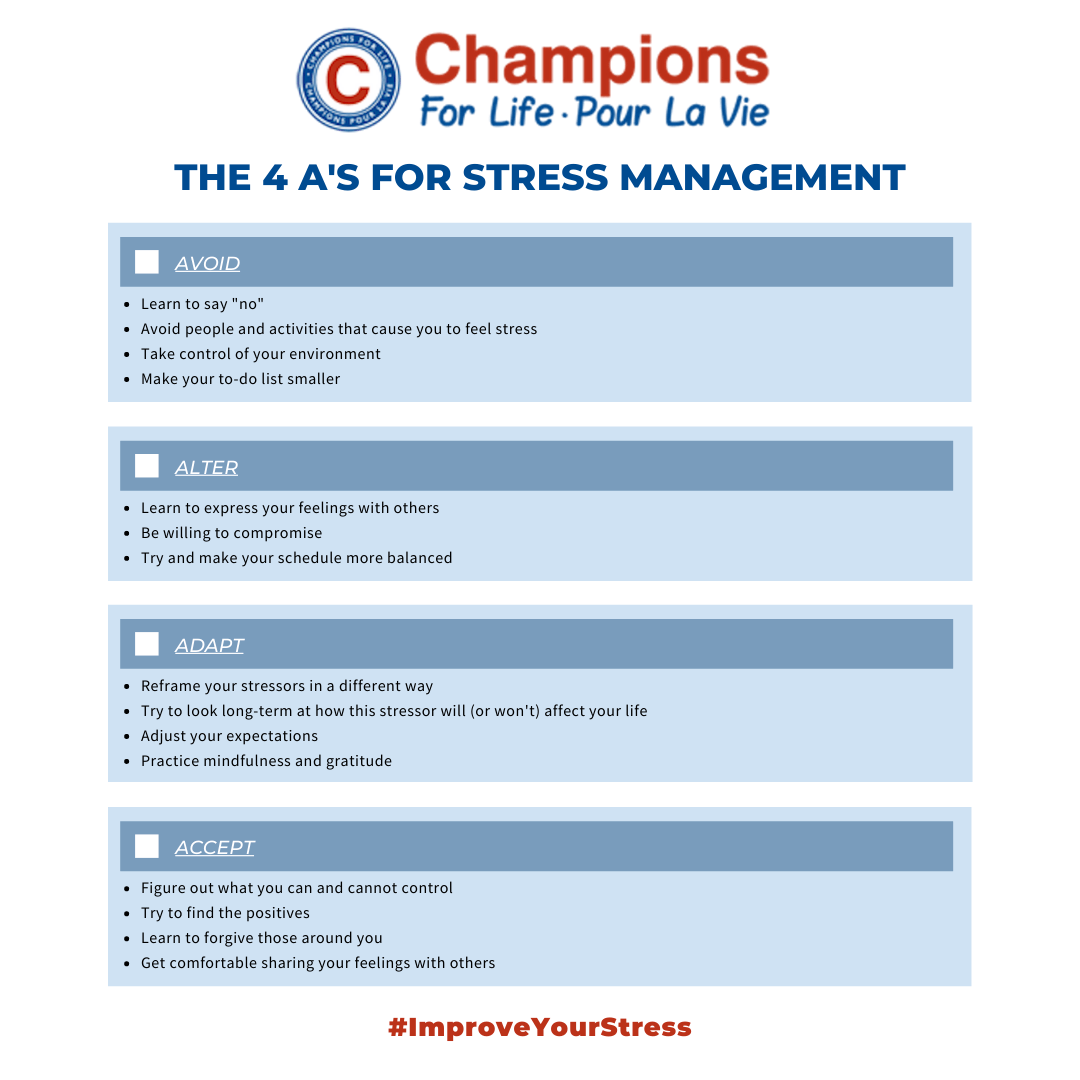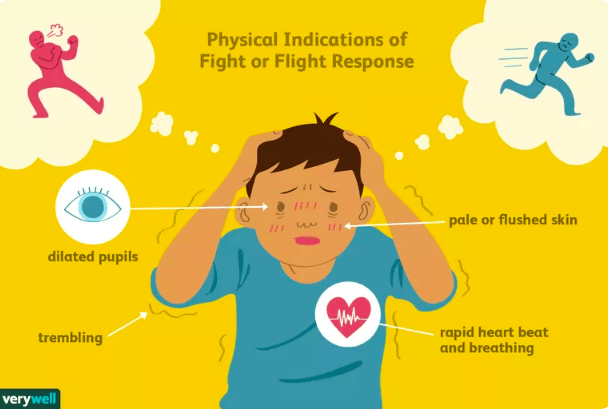5 Active Ways to Improve Your Stress
It's no secret that we're in the middle of a very stressful time. The increased stress of life during a pandemic is challenging our mental coping skills. With loss, grief and mounting uncertainty, more people struggle with their mental health than ever before.
Two weeks ago, in honour of National Stress Awareness Day on November 4th, we launched #ImproveYourStress on our social media accounts. We shared a different tip every day to help with stress management. These tips aim to remind you to take some time each day for YOU, hopefully helping you feel a little less tense. We wanted to give these tips a permanent place on our website to help you cope with whatever comes your way, at any given time.
First and foremost, if you or a friend/loved one is struggling with a mental health issue, please check out the resources on the Centre for Addiction and Mental Health's website. If you or someone you know has suicide-related concerns, please call the Canada Suicide Prevention Helpline, 1-833-456-4566.
Learn more, stress less
Learning more about stress and the various factors that cause people to be stressed can help you make informed choices when you come across stressful situations. It will help you to recognize your stress triggers and how you can face them more healthily. These newfound insights will also allow you to better understand how people behave under stress. It will help you develop an approach with your friends and family and better manage stress for a happy life. This post from our social media outline's the 4 A's of stress management.
Now let’s look at some active ways to manage stress!
Train for your brain
You probably already know that exercise is good for you in a physical sense, but you may have never considered exercising for the sole benefit of improving your mental state. Regular exercise has been associated with improved energy levels, alertness and concentration. Additionally, it has been known to enhance overall cognitive function. What is cognitive function, you ask? It’s the skills we use to carry out even the most simple of tasks: thinking, learning, remembering. Stress can deplete your energy or cloud your concentration, so try and use exercise to combat this! You don’t have to do a 1-hour workout class every single day, but try and find some time (even 10 minutes) each day to get up and get moving! Next, let’s look at some different ways to get in those minutes!
Take a walk
Did you know that the stress response increases blood pressure - at least temporarily? You've probably experienced an increased heart rate during a time of stress before; this is called the "Fight or Flight" response. “Fight or Flight” occurs when your body perceives danger or stress and prepares accordingly. One of the physical signs of this response is a rapid heart rate. Your heart beats faster, and your blood vessels narrow, increasing your blood pressure. So what does all this physiology have to do with walking? Walking can help to lower blood pressure immediately. A 2005 study found that a single bout of light aerobic exercise such as walking helped reduce the blood pressure response to stress. Another study published in 2018 found that aerobic exercise can lower blood pressure for up to 25 hours after exercise.
Run happy
Ever heard of a "Runner's High?" According to Runner's World, it's the feeling you get when your run feels easy, exhilarating and sometimes even euphoric. When you begin to run, you get an immediate boost in dopamine, noradrenaline, and serotonin. These three hormones are absolutely essential to normal brain function and are often referred to as "happy hormones." Running may even help those struggling with addiction. More and more research suggests that aerobic exercise, like running, can help with the imbalance of neurotransmitters that may be linked to addiction.
Find your flow
Research has shown that yoga works as a form of moving meditation to replace stressful thoughts with feel-good brain waves. The practise dates back to being one of the oldest ways of stress management and personal development. The basis of yoga can be broken down into 3 components: postures or poses, breathing and mindfulness. The benefits are numerous; reduced stress and feelings of anxiety, better sleep, reduced blood pressure, and increased feelings of self-efficacy, just to name a few. Want to give yoga a try but don't know where to start? Lucky for you, there's plenty of great free resources online, which are very COVID-friendly. For adults, try Yoga with Adrienne on Youtube. For kids, check out Cosmic Kids! For those with limited mobility, chair yoga may be an excellent place to start.
Make play a priority
Our society tends to dismiss play for adults. "Play" is perceived as unproductive, petty or even a guilty pleasure. The notion is that once we reach adulthood, it's time to get serious. And between personal and professional responsibilities, there's no time to play. But "play" is just as pivotal for adults as it is for kids. According to the authors of Welcome to Your Child's Brain: How the Mind Grows from Conception to College, play activates the reward center in your brain without initiating a stress response. This helps to improve your attention and motivate you to take action. There are many different types of play, but let's look at unstructured play for a moment. Unstructured play occurs without defined instruction or purpose. As adults, our days are often limited to schedules and to-do lists. It's essential to take time to do other things just for the sake of it. This may look like purchasing an adult colouring book, messing around with an instrument or even building something out of lego. We did a blog post a while ago with tons of ideas for unstructured play that can work for kids or adults!
Do you have some active ways to help manage your stress? Please share in the comments below. While you’re at it, follow along on our social media accounts for more fun ideas!






